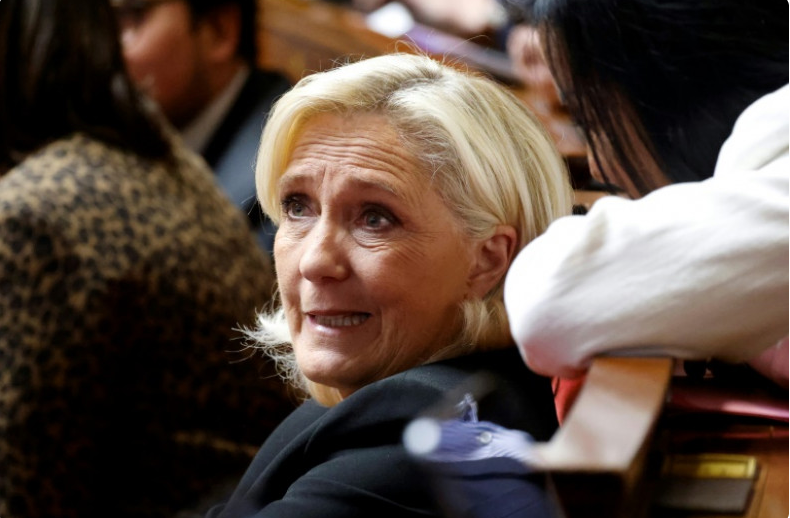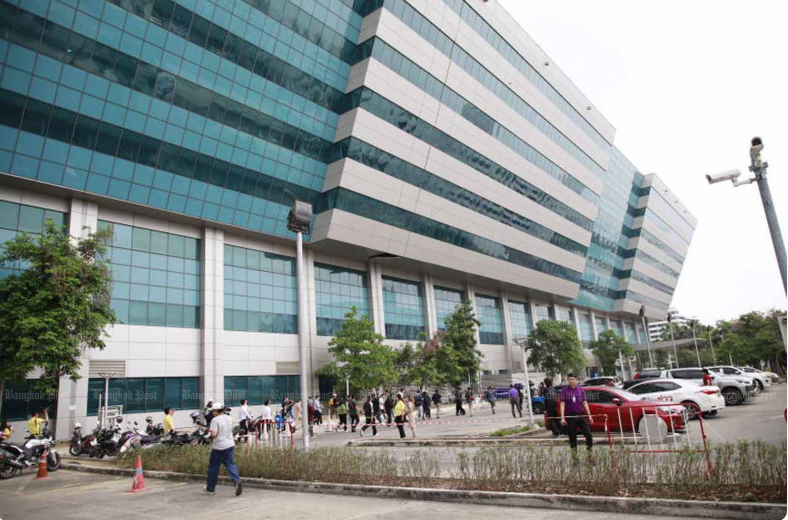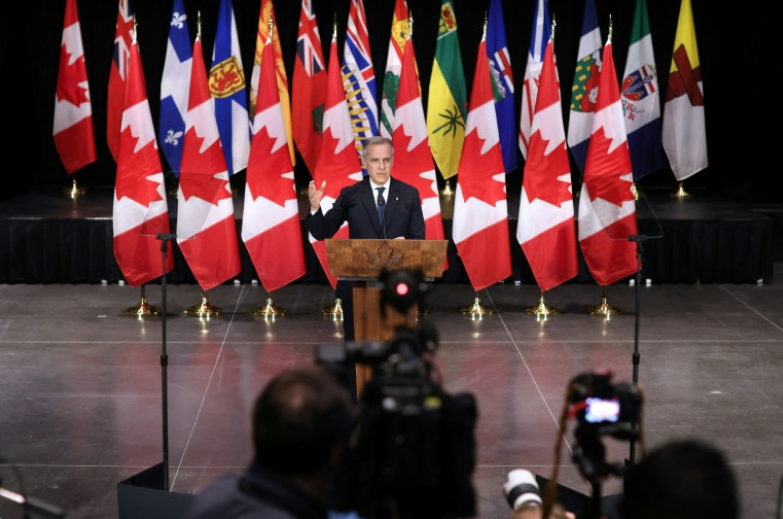Canada to hold snap elections under threat from Trump
OTTAWA — In a likely push for a stronger mandate as Canada battles a trade war and the threat of annexation from Donald Trump’s United States, Canada’s new prime minister Mark Carney will announce snap elections Sunday.
The former central banker was selected by the centrist Liberal Party to succeed Justin Trudeau as prime minister, but has never appeared before the larger Canadian electorate.
But on April 28 that should change, if, as is widely expected, Carney announces he is moving parliamentary elections forward several months from October.
He would deliver the decision in a speech to Canada’s 41-million strong nation at 12:30 local time (1630 GMT), government sources told AFP.
The Liberal government, now a decade in power, had slumped into deep unpopularity, but Carney will be hoping to ride a wave of Canadian patriotism to a new majority — thanks to Trump’s threats.
Trump has angered his northern neighbor by repeatedly questioning its sovereignty and borders as artificial, and suggesting it join the United States as the 51st state.
Those threatening words have been followed by Trump’s trade war, placing tariffs on imports from Canada that could ruin its economy.
“In this time of crisis the government requires a strong and clear mandate,” Carney said in an address to supporters on Thursday, made in the western city of Edmonton.
Poll favorites –
Usually, it is domestic issues like the cost of living and immigration that dominate Canadian elections, but this year there is one key issue that heads the list: who can best deal with Trump.
The president’s very public animus at his northern neighbor — a NATO ally and traditionally one of his country’s closest partners — has unsettled the Canadian political ecosystem.
Trudeau, who had governed since 2015, was extremely unpopular when he announced he was stepping aside, and Pierre Poilievre’s Conservatives were viewed as favorite’s in the election just weeks ago.
But the polls have closed dramatically in Carney’s favor since he took the reins of the Liberals, and analysts now say this Trump-indebted contest is too close to call.
“This is an existential election, unprecedented, for many,” Felix Mathieu, a political scientist at the University of Winnipeg told AFP.
“It’s too early to make predictions, but this is going to be a closely watched election with a voter turnout that should go up.”
Poilievre, 45, is a career politician, first elected at just 25. A grizzled tough-talking campaigner, he has at times been described as a libertarian and a populist.
Carney, 60, also spent his career outside the world of electoral politics. He served more than a decade at Goldman Sachs before becoming the head of Canada’s central bank, then the Bank of England.
The smaller opposition parties may be the biggest losers if Canadians feel the need to give one of the big two a big mandate to strengthen his hand against Trump.
And as for the leader in Ottawa, he claims not to give a damn, while ramping up plans to further tighten tariffs against Canada and other top trading partners as of April 2.
“I don’t care who wins up there,” he said this week.
“But just a short while ago, before I got involved and totally turned the election around, which I don’t care about […] the Conservative was up by 35 points.










